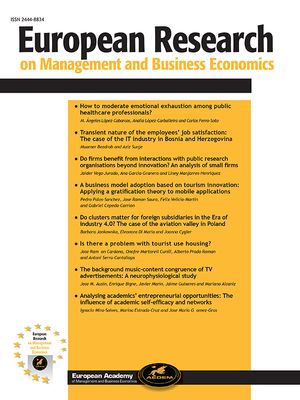La implantación y certificación de sistemas de calidad se ha convertido en una de las prácticas más generalizadas en el ámbito empresarial. El sistema de medición y control adoptado por la empresa debería ser un reflejo de su grado de compromiso con la gestión de la calidad. De manera generalizada, se admite la necesidad de desarrollar indicadores no financieros de medición que respalden la implantación de los sistemas de calidad y su posterior evaluación continua. Este trabajo analiza la relación entre la calidad y la utilización de indicadores no financieros para gestionarla, en el sector del mueble en España. Nuestros resultados nos permiten afirmar que las empresas certificadas por la ISO 9000 utilizan en mayor medida indicadores no financieros que las empresas no certificadas.
The implementation and certification of QA systems has become a widespread practice in the business world. Measurement and control systems adopted by businesses should reflect their level of commitment to quality management. Generally speaking, the need to develop non-financial indicators supporting the implementation of QA systems and their subsequent continual assessment is generally accepted. This work studies the relationship between quality and the use of non-financial indicators to manage quality in the Spanish furniture industry. Our results allowed us to claim that ISO 9000 certified businesses use non-financial indicators to a larger extent compared to non-certified businesses.





